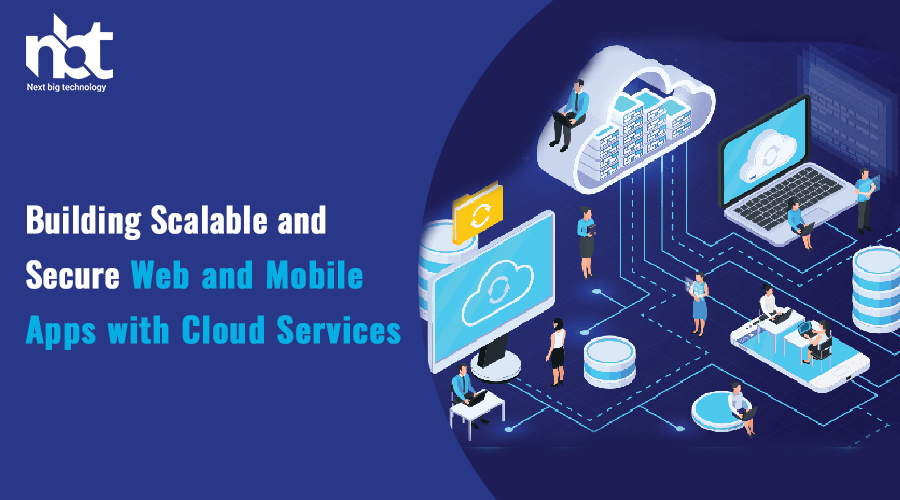Table of Contents
Introduction to Cloud Services
Before we delve into the details of building scalable and secure web and mobile apps, let’s understand what cloud services are. Cloud services refer to the delivery of computing resources, including servers, storage, databases, networking, analytics, and more, over the internet. They eliminate the need for organizations to invest in and maintain physical infrastructure, offering a pay-as-you-go model.
Benefits of Using Cloud Services for App Development

When it comes to app development, cloud services offer several advantages. They provide scalability, flexibility, and cost-efficiency, allowing developers to focus on coding rather than managing hardware. Additionally, cloud service providers offer a range of tools and services that can streamline the development process.
Choosing the Right Cloud Service Provider
Selecting the right cloud service provider is a crucial decision. Popular options include Amazon Web Services (AWS), Microsoft Azure, and Google Cloud Platform (GCP). Each has its strengths and weaknesses, so it’s essential to align your choice with your project’s specific requirements.
Designing for Scalability
Scalability is a core consideration in app development. Cloud services enable developers to scale their applications up or down based on demand. This elasticity ensures that your app can handle fluctuations in user traffic without performance issues.
Ensuring Data Security in the Cloud

Security is paramount in app development. Cloud service providers offer robust security features, but it’s essential to configure them correctly. Implement encryption, access controls, and regular security audits to protect sensitive data.
Building a Scalable Web App
To build a scalable web app, developers should follow best practices such as using microservices architecture, content delivery networks (CDNs), and serverless computing. These approaches distribute the workload efficiently, ensuring smooth app performance.
Building a Scalable Mobile App
Mobile app scalability involves optimizing code, utilizing cloud-based backends, and employing responsive design. These strategies enhance the user experience and accommodate varying device specifications.
Monitoring and Optimization

Continuous monitoring and optimization are essential to maintain app performance. Cloud services provide tools for monitoring resource utilization, identifying bottlenecks, and making necessary adjustments.
Disaster Recovery and Backup Strategies
Preparing for unforeseen disasters is vital. Implement data backup and disaster recovery plans to safeguard your app’s data and ensure business continuity.
Cost Management
While cloud services offer cost savings, it’s essential to manage expenses effectively. Implement budgeting and cost monitoring tools to avoid unexpected charges.
Case Studies: Successful Apps Built with Cloud Services

Explore real-world examples of apps that have leveraged cloud services to achieve scalability and security. Learn from their success stories and strategies.
Future Trends in Cloud App Development
Stay ahead of the curve by keeping an eye on emerging trends in cloud app development, such as edge computing, artificial intelligence integration, and containerization.
Conclusion
Building scalable and secure web and mobile apps with cloud services is essential for modern businesses. By harnessing the power of cloud technology, developers can create apps that provide exceptional user experiences while remaining flexible, cost-effective, and secure.
Thanks for reading our post “Building Scalable and Secure Web and Mobile Apps with Cloud Services”. Please connect with us to know more aboutBuilding Scalable and Secure.










